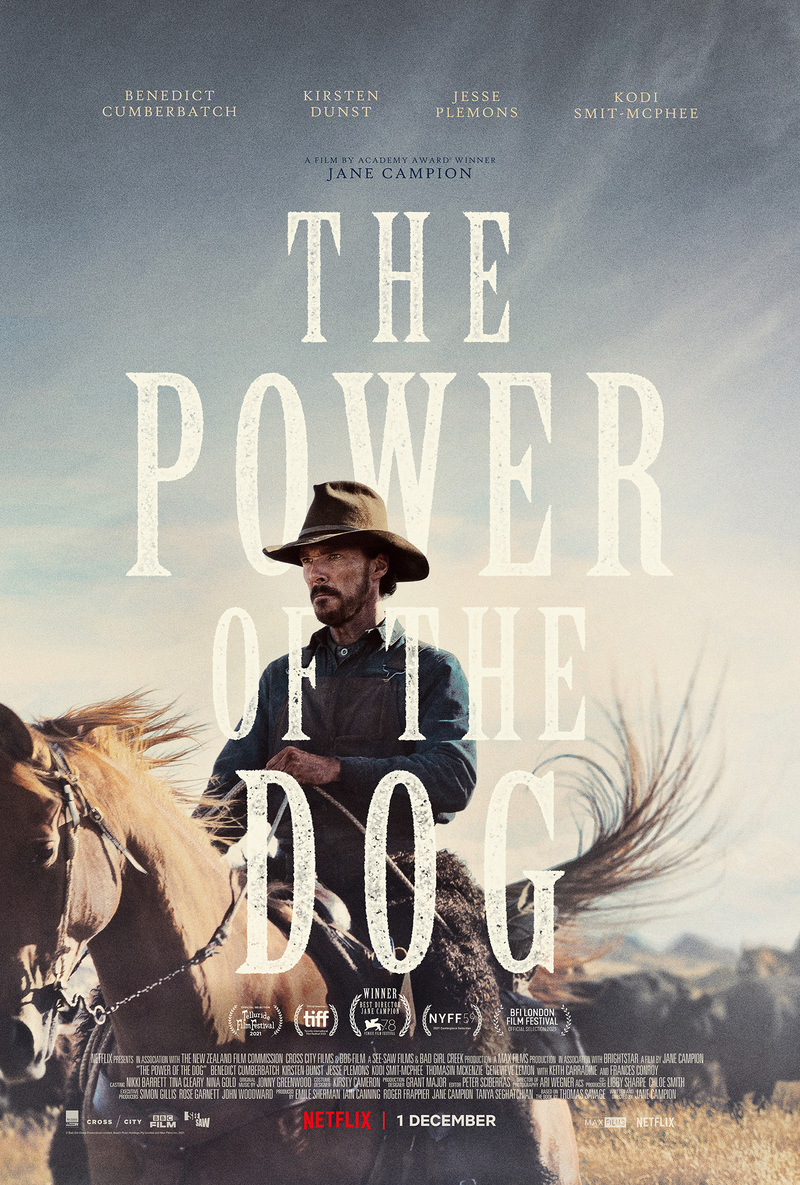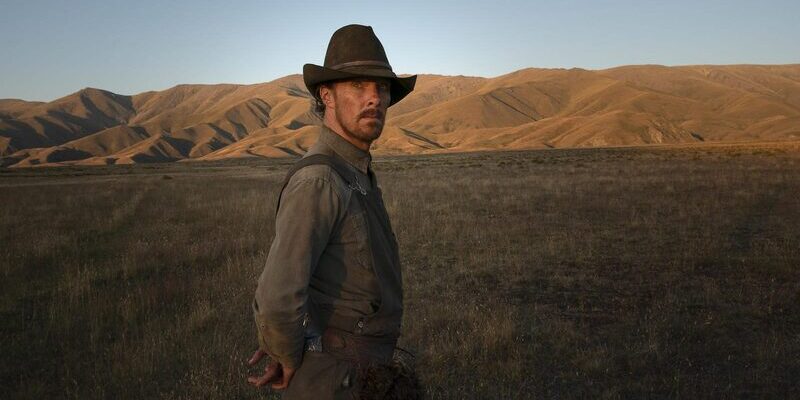
Review by
Eric Hillis
Directed by: Jane Campion
Starring: Benedict Cumberbatch, Kodi Smit-McPhee, Jesse
Plemons, Kirsten Dunst, Keith Carradine, Thomasin McKenzie

With her adaptation of Thomas Savage's 1967 novel
The Power of the Dog, Jane Campion has crafted something of an anti-Brokeback Mountain,
a film that feels inspired by the character dynamics found in the films of
Paul Thomas Anderson. Indeed, its lead character, a cold, cruel and ruthless
rancher played by a never better Benedict Cumberbatch, could be a
cousin of There Will Be Blood's Daniel Plainview, and Campion has enlisted that movie's composer,
Jonny Greenwood, for a similarly discordant score.

Campion's film is set in 1925 Montana, a state known for its wide open
plains and big sky. It's a deliciously ironic setting for a movie about
people who feel hemmed in and smothered by their surroundings, people out of
place and out of time.
Cumberbatch plays Phil Burbank, who along with his brother George (Jesse Plemons) runs a modest ranch. The two men were raised and thought the ways of
ranching by a long dead mentor named Bronco Henry, who Phil speaks of with
the reverence and obsession of a preacher discussing Christ. While George is
a gentle, bookish soul, Phil likes to get down and dirty, hanging out with
his ranch hands as though he were their buddy rather than their employer.
Phil has a cruel streak, taking out an initially ambiguous rage on whatever
human, animal or inanimate object gets in his way.

The motivations for Phil's over-the-top, aggressive machismo begin to
reveal themselves when George marries local innkeeper Rose (Kirsten Dunst), who moves into the brothers' home with her effeminate teenage son Peter
(Kodi Smit-McPhee). Peter is mocked for his "nancy boy" ways by Phil,
whose homophobic taunts are picked up by his employees, making life on the
ranch hell for Peter. Things take a turn when Peter stumbles on a secret
hiding place where Phil keeps his true self buried.
Thus begins one of the most daring narratives in recent queer cinema. The
movies have tended to treat gay men in one of two ways, either mocking them
or patronisingly treating them as though they're angelic figures, innocent
of the worst traits of their straight brothers.
The Power of the Dog is refreshing in that it gives us a
brutally honest examination of how many gay men would have behaved in the
early 20th century, transferring their shame and confusion into cruelty,
attacking anyone they identify with in the hopes such a display of
performative masculinity will cover their own tracks. In employing the
western genre, Campion's film harks back to such expressions of repression
as Montgomery Clift and John Ireland comparing the heft of their pistols in
Red River.

Never speaking or physically expressing their desires, Phil and Peter
engage in a psychological cold war, with the older man flipping between
mocking the younger boy in public and treating him with a paternal fondness
in private. Phil's lust and self-torture are expressed through his slowly
fashioning a rope from rawhide for the boy, an act filmed with erotic
precision by Campion's inverted female gaze. The implications of this prop
are numerous, but there's an inescapable suggestion of S&M. We're left
to fear for Peter as it becomes increasingly unclear how frustratingly assless chap Phil intends to
wield this rope, or what exactly it symbolises. Ultimately it becomes one of
the most memorable props of recent cinema.

The Power of the Dog is on Netflix
now.

